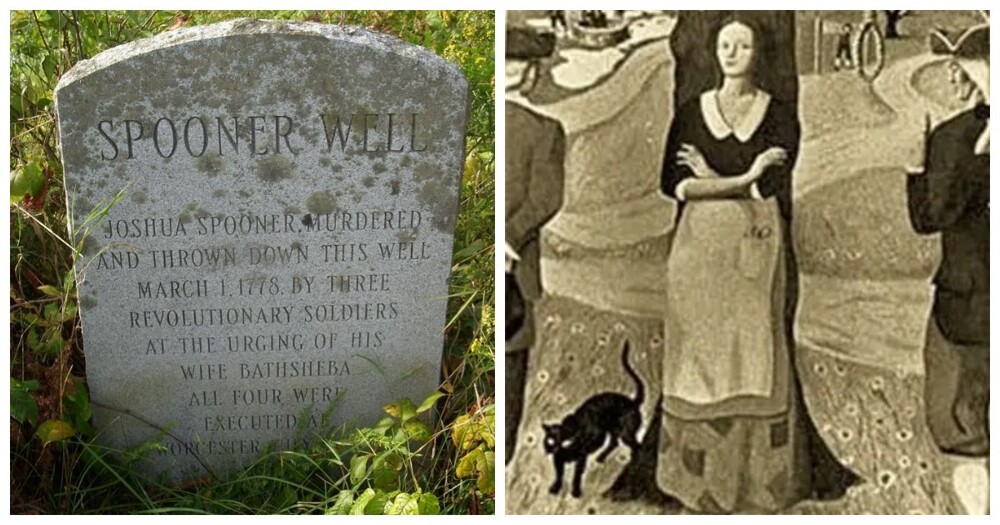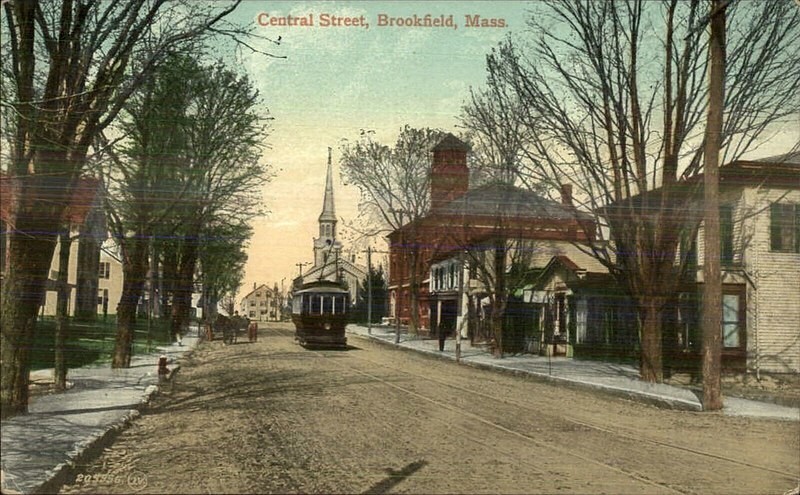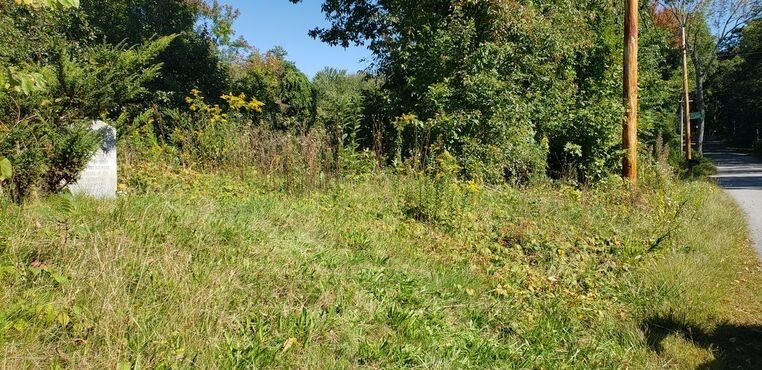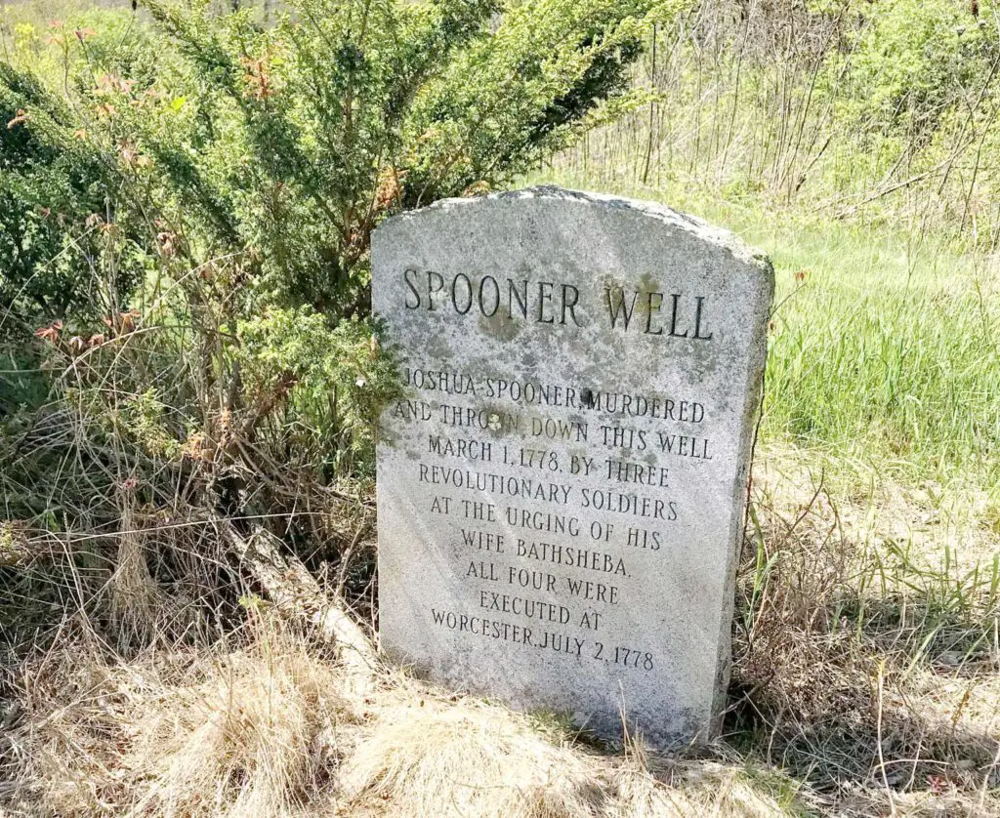Spooner's gloomy well, two graves of a husband and the dubious status of a wife (5 photos)
Family squabbles can escalate into such bloody dramas that they remain in history and even turn into interesting, albeit dark, attractions. 
Like this monument on the site where, in 1778, Bathsheba Spooner killed her husband Joshua and threw him into her own well. 
The main street of the city in 1908
In 1777, a 32-year-old married woman from Brookfield, Massachusetts, had an affair. The chosen one was almost half his age - a soldier named Ezra Ross was barely 17 years old. 
Neighborhood
Bathsheba Spooner, nee Ruggles, did not love her husband, farmer Joshua Spooner. And she married him because of her father’s agreements. Since the affair ended in pregnancy, and the father of the child could not be the husband, the traitor quickly developed a further plan of action. She persuaded Ross to kill her husband. The lover attracted two more friends. 
Together they beat poor Joshua to death and then threw his body into a well. The crime was not ideally executed, and all the conspirators were caught within 24 hours. The trial took place in nearby Worcester, Massachusetts. The murderers were hanged, despite the fact that Bathsheba claimed to be pregnant. The petition for postponement was first accepted, then canceled. An autopsy showed that the woman was indeed five months pregnant. 
Thus, on July 2, 1778, Bathsheba Spooner received dubious status and became the first representative of the fairer sex to be executed in the United States after the state gained independence. Her unhappy and unloved husband also received his own distinctive symbol - two tombstones at once. One was installed, as expected, in Brookfield Cemetery over Spooner's grave. And the second one marked the place of his death. It bears the following epitaph: "Spooner's Well - Joshua Spooner, killed and thrown into this well, March 1, 1778, by three soldiers at the insistence of his wife Bathsheba."

























